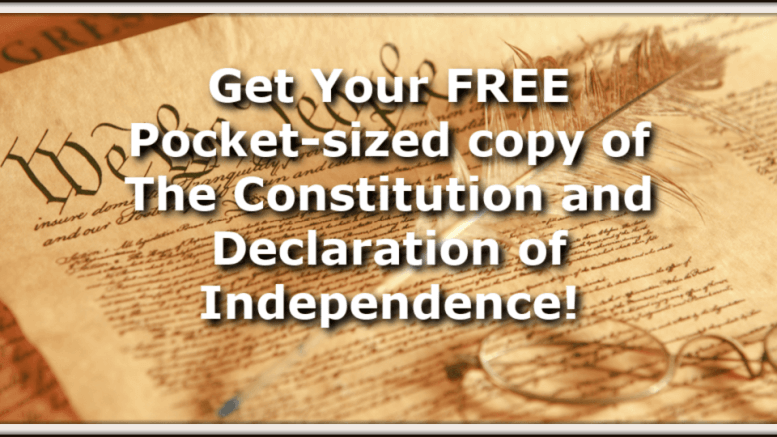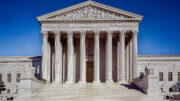The U.S. Constitution is the key to securing liberty for all Americans — yet few know exactly what it says, and what freedoms it protects. These videos are meant to give a simple and quick understanding of key aspects of the U.S. Constitution. This video message is proudly presented by Hillsdale College, dedicated to promoting civil discourse and the principles of liberty and limited government.
Understanding the laws of nature and nature’s God as envisioned by the Founding Fathers is crucial because these principles underpin the foundational values of justice, liberty, and inherent human rights that the Constitution aims to protect and uphold.
- In the Declaration of Independence, God is named as the embodiment of all three branches of government.
- The first paragraph establishes the principle of equality, citing all men as created equal under the laws of nature and Nature’s God.
- God is referenced in two other instances: when stating that men are endowed with inalienable rights by their Creator, and when pledging to each other by the name of Divine Providence.
- These references associate God with various branches of government: as the lawmaker, the Supreme judge, and the Founder.
- Despite attempts by the king to consolidate power, the only entity deemed trustworthy to embody all branches of government is God, as explicitly stated in the document.
- The laws of nature and of Nature’s God refer to the rules governing the natural order, attributed to the God responsible for maintaining order and protecting the revolution.
- While not all revolutionaries shared the same beliefs about God’s role, many saw Him as integral to their cause.
- The United States aimed to be a haven for those with diverse religious beliefs, recognizing the importance of both faith and freedom in shaping the nation’s identity.
- Thank you for watching; we hope you’re enjoying our highlights series and encourage you to explore Hillsdale College’s free online courses for lifelong learners.
Get Your FREE Pocket-sized copy of The Constitution and Declaration of Independence!
Click Here to get yours Today (Hillsdale Constitution Minute)
The Constitution of the United States does not explicitly list “laws of nature” within its text. However, the concept of “laws of nature” is referenced in earlier foundational documents and philosophical writings that influenced the framers of the Constitution, such as the Declaration of Independence and the writings of philosophers like John Locke.
Here are the key points where concepts related to “laws of nature” and natural rights are implied or foundational to the Constitution:
-
Preamble: Establishes the goals of the Constitution, reflecting principles that align with natural law concepts such as justice, liberty, and the general welfare.
-
Article I, Section 9, Clause 2 (Habeas Corpus): Protects against unlawful and indefinite imprisonment, a principle rooted in natural rights.
-
Article III, Section 2 (Judicial Powers): Ensures the judicial power extends to all cases arising under the Constitution, laws of the United States, and treaties, providing a mechanism for protecting natural rights.
-
Bill of Rights: The first ten amendments explicitly protect individual liberties and rights, many of which can be seen as derived from natural law principles:
- First Amendment: Protects freedoms of speech, religion, press, assembly, and petition.
- Second Amendment: Protects the right to keep and bear arms.
- Third Amendment: Protects against quartering of soldiers in private homes without consent.
- Fourth Amendment: Protects against unreasonable searches and seizures.
- Fifth Amendment: Protects rights related to due process, double jeopardy, self-incrimination, and eminent domain.
- Sixth Amendment: Protects the right to a fair trial.
- Seventh Amendment: Protects the right to trial by jury in civil cases.
- Eighth Amendment: Protects against excessive bail, fines, and cruel and unusual punishment.
- Ninth Amendment: States that the listing of specific rights in the Constitution does not mean that people do not have other rights not specifically mentioned.
- Tenth Amendment: Affirms that powers not delegated to the United States by the Constitution, nor prohibited by it to the States, are reserved to the States or the people.
These points reflect the underlying principles of natural law and natural rights, which emphasize inherent human rights and liberties that government should protect.
Want to learn more about the Constitution?
Get Hillsdale’s FREE online course on the Constitution here:
Constitution 101: The Meaning and History of the U.S. Constitution
The author generated this text in part with GPT-3, OpenAI’s large-scale language-generation model. Upon generating draft language, the author reviewed, edited, and revised the language to their own liking and takes ultimate responsibility for the content of this publication.





